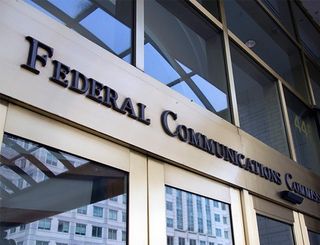FCC Speeds Up Spectrum Auction

As of Tuesday (Aug. 23), the FCC will increase the number of rounds in the forward portion of the spectrum incentive auction to three and shorten the bidding time by an hour.
The move is an effort to speed the process.
The bidding has been in two two-hour rounds (10 a.m.-12 p.m. and 2-4 p.m.) but will now move to three one-hour rounds at 10-11 a.m., 1-2 p.m. and 4-5 p.m.
Related: FCC—Rules Are Made to Be Kept
As of the end of round eight on Monday, a total of $12,043,700,000 had been bid, up from $11,526,999,000 bid in round seven. Net of discounts and bidding credits, round eight has brought in $11,490,000,000 toward the $88,379,558,704 needed to cover the $86-plus billion the FCC has promised to pay broadcasters for the 126 MHz of spectrum they agreed to give up for re-auctioning for wireless broadband, plus about $2 billion in auction expenses and paying broadcasters to relocate after the auction.
The bid total has been moving up at a pace of $400 million-$500 million per round.
Related: AT&T Outlines Its Keys to Regional Spectrum Repack
Broadcasting & Cable Newsletter
The smarter way to stay on top of broadcasting and cable industry. Sign up below
There are 416 geographic areas being bid on, with the FCC increasing the prices on that spectrum by 5% in each round to winnow the field of bidders and collect enough to close the auction, which will only happen when that $88.379 billion figure is met and a minimum price in the top 40 markets is reached, irrespective of what clearing target the FCC eventually meets.
The commission has set a number of such targets. For example, if it does not raise enough in the forward auction, it will lower the target from 126 MHz to 114 MHz, then continue the reverse auction at that lower spectrum—and payout—target, then hold another forward auction to try and cover that lower amount.
Related: FCC Denies Request to Suspend, Slow Spectrum Auction
Most observers see the auction having at least a couple of stages and the spectrum clearing target being lowered at least once and perhaps more times. The auction was designed to let the marketplace set the ultimate spectrum target and price for clearing.
Contributing editor John Eggerton has been an editor and/or writer on media regulation, legislation and policy for over four decades, including covering the FCC, FTC, Congress, the major media trade associations, and the federal courts. In addition to Multichannel News and Broadcasting + Cable, his work has appeared in Radio World, TV Technology, TV Fax, This Week in Consumer Electronics, Variety and the Encyclopedia Britannica.

